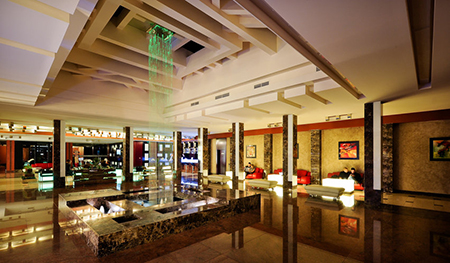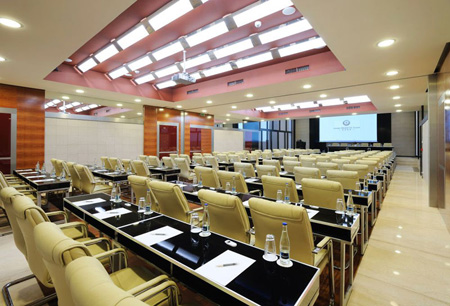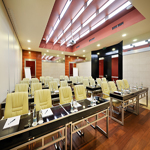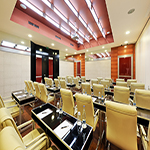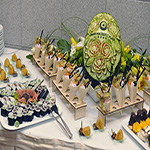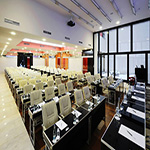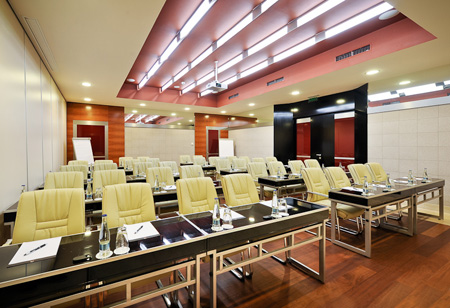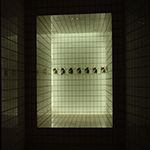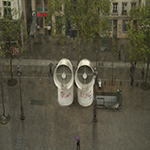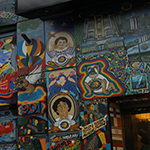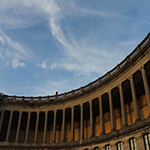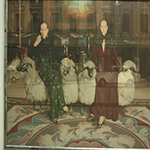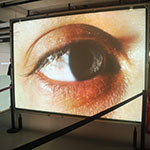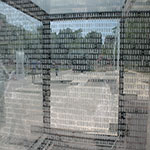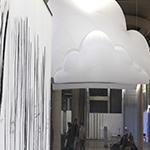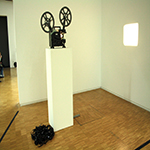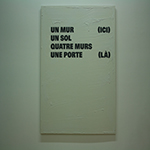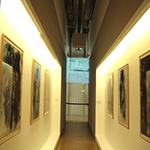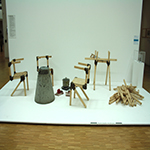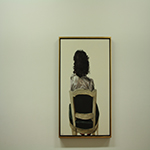Grand Majestic Plaza Hotel
Truhlarska 16, 110 00 Prague 1 Czech Republic CONFERENCE Room: Grand IIConference program
- February 21, 2014
- 09:30 - 10:00Registration
- 09:30 - 10:30Opening Workshop Asking Big Questions Again: The Role of Criticism Today
- 10:30 - 11:00Coffee Break and Snacks (Foyer)
- 11:00 - 13:00Panel 1 – Theory and Praxis: Bridging the Gap in Critical Theory (Chair: Dana Domsodi, Scuola Superiore Sant’Anna, Pisa, Italy)
- 13:00 - 14:00Lunch (Grand Majestic Plaza Restaurant)
- 14:00 - 16:00Panel 2 – Political Economy and Critical Re-Thinking of Mode(l)s of Capitalism (Chair: Emanuel Crudu, IMT Institute for Advanced Studies, Lucca, Italy)
- 16:00 - 16:30Coffee Break and Snacks (Foyer)
- 16:30 - 18:00Panel 3 – Performing Identity: The Relationship between Identity and Performance in Literature, Music, Theatre and the Performing Arts (Section One) (Chair: Chrysochou Panayiota, The University of Cyprus)
- 18:00 - 19:30Panel 4 – Critical Applied Politics: Understanding Social Realities and Ways to Transform Them Chair: Gerhard K. Eichweber (Value Group, Switzerland )
- 19:30 - 20:00Welcome Drink and Snack (Grand Majestic Plaza - Atrium)
- 20:00 - 22:00Optional Social Dinner at a Czech Cuisine Restaurant
- February 22, 2014
- 09:00 - 11:00Panel 5 – (En)Gendering Identity: Gender in Culture, Educations and Society (Chair: Chrysochou Panayiota, The University of Cyprus)
- 11:00 - 11:30Coffee Break and Snacks (Foyer)
- 11:30 - 13:00Panel 6 – Marxism Reloaded or Philosophy in Times of Poverty (Chair: Davide Bradanini, IMT Institute for Advanced Studies, Lucca, Italy)
- 13:00 - 14:00Lunch (Grand Majestic Plaza Restaurant)
- 14:00 - 16:00Panel 7 – Performing Identity: The Relationship between Identity and Performance in Literature, Music, Theatre and the Performing Arts (Section Two) (Chair: Chrysochou Panayiota, The University of Cyprus)
- 16:00 - 16:30Coffee Break and Snacks (Foyer)
- 16:30 - 18:30Panel 8 – Critical Theory: From Meta-Narratives to Social Beliefs (Chair: Emanuel Crudu, IMT Institute for Advanced Studies, Lucca, Italy)
- 18:30 - 19:00Closing Session: Concluding Remarks
- 19:00 - 21:00Optional Social Dinner at a Czech Cuisine Restaurant
- February 21, 2014
The Second Global Forum of Critical Studies
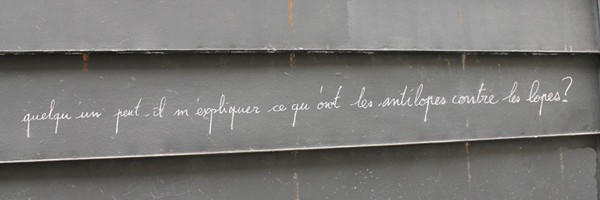
- Conference Description
- Participant’s Profile
- Registration and Fee
- Social Activities and Publication
- Important Dates
- Venue and Directions
- PROGRAM
- Panel 1
- Panel 2
- Panel 3
- Panel 4
- Panel 5
- Panel 6
- Panel 7
- Panel 8
The Second Euroacademia
Global Forum of Critical Studies
Asking Big Questions Again
21-22 February 2014
Grand Majestic Plaza, Prague, Czech Republic
Some say that the 21st Century or modernity altogether made humans more concerned with doing rather than being. As the classical Greek civilization valued most the reflexive thinking as a form of freedom from natural necessities, contemporary times profoundly involve individuals and the imaginary accompanying social practices in a restless logic of consumption, competition and engagement that profoundly – or some would say, radically – suspends or indefinitely postpones the autonomous capacity of human beings to question and reflect upon the social order and the meaning of social practices. The fast advancement of a peculiar logic of post-industrial societies, the gradual dissolution of alternative models to the capitalist logic and a multitude of other alerting factors pushed ahead a global spread culture of one-dimensional productions of meaning that advances a closure rather than a constant reflexive re-evaluation of cultural/social practices.
Many alternatives at hand are often condemned to marginality or lost in the plural practices where everything goes as long as it’s part of an intellectual market. The ‘fatal strategies’ of post-industrial societies to keep individuals captive, busy and seduced by contingent social arrangements and economic practices minimized the questioning detachment required to evaluate and give meaning through reflexive criticism and unlimited interrogation. Various labels were given to our unfolding times from apocalyptic ones to some more comforting yet not by chance lacking some vital optimism. Despite a wide-spread discontent and suspicion towards the daily realities of our current societies, most of the big questions are often left outside by the self-involved active pursuit of an imagined well-being that is no longer transgressed by harsh critical evaluation of its meaning. The academic arena itself also advances, supports, integrates and promotes limited particular methodologies that generate an effect of mainstreaming and often keeps researchers or practitioners out of the battle-ground for big questions.
The ongoing economic crisis made reality even harsher and pushed ahead the need for more thinking as many habitual categories lost their meaning or relevance. New ways of thinking could transgress some inappropriate conceptions or misconceptions that preserve their centrality due to the mechanics of habits. This is a time when a call to thinking is well-placed. This is a call to arms for critical studies that promotes alternative, questioning and multidimensional thinking.
The Second Euroacademia Global Forum of Critical Studies aims to bring into an open floor the reflexive and questioning interaction among academics, intellectuals, practitioners and activists profoundly concerned with evaluative understandings of the world we’re living in. The focus of the forum is to initiate an arena where no question is misplaced and irrelevant as long as we acknowledge that evaluation, critical thinking and contestation are accessible trajectories to better understand our past, present and alternative scenarios for the future.
Participant’s Profile
The conference is addressed to academics, intellectuals, researchers and professionals, practitioners and activists profoundly concerned with evaluative understandings of the world we’re living in. As the nature of the conference is intended to be multidisciplinary in nature different academic backgrounds are equally welcomed.
Post-graduate students, doctoral candidates and young researchers are welcomed to submit an abstract. Representatives of INGOs, NGOs, Think Tanks and activists willing to present their work, research, experiences or reflections are welcomed as well to submit the abstract of their contribution. Euroacademia does not promote the byzantine association of people with their institutions. As well the distinction between senior and junior researchers is not applied as a cleavage.
Abstracts will be reviewed and the participants are selected based on the proven quality of the abstract. The submitted paper for the conference proceedings is expected to be in accordance with the lines provided in the submitted abstract.
Registration and Fee
Registration is now closed
The Participation Fee Includes:
- the registration fee
- participant’s package with all the materials for the conference
- a copy of the electronic volume
- access to Euroacademia discussion group and newsletters
- discounted rates for participation in the future Euroacademia conferences
- daily welcome coffee with snacks and unlimited conference drinks (water/sodas)
- coffee brakes with snacks for all the duration of the conference
- sparkling wine opening reception with snacks on 13th of December 2013
- a 4 course lunch on 21st of February 2014 at the 4* Grand Majestic Plaza Restaurant
- a 4 course lunch on 22nd of February 2014 at the 4* Grand Majestic Plaza Restaurant
- certificate of attendance
- access to exceptionally discounted rates for accommodation at 4* Deluxe Grand Majestic Plaza Hotel
- optional social program
Unfortunately, Euroacademia has no available funds for covering transport and accommodation to/in Prague. Participants are responsible for finding funding to cover transportation and accommodation costs during the whole period of the conference. Official invitation letters can be sent by Euroacademia to the financing institution to confirm the selection and participation in the conference upon request.
Social Activities and Publication
A specific spot in the conference program will be dedicated to social networking and therefore all the participants interested in setting or developing further cooperation agendas and prospects with other participants will have time to present and/or promote their project and express calls for cooperation.
A specific setting (Social Corner) for promotional materials connected with the topic of the conference will be reserved for the use of the participants. Books authored or edited by the participants can be exhibited and promoted during the whole period of the conference and can also be presented within the conference package based on prior arrangements.
An optional dinner and a social event will be organized for the evenings of the conference in a typical Czech cuisine restaurant as optional program for the willing participants. The social dinner will be held based on participant’s confirmation and it costs around 15 Euro to be covered individually by participants.
Publication:
Selected papers will be published in an electronic volume with ISBN after the confirmation of the authors and a double peer-review process based on an agreed publication schedule. All the papers selected for publication should be original and must have not been priory published elsewhere. All participants to the conference will receive a copy of the volume.
| Important Dates | |
|---|---|
| 15 December 2013 | Deadline for Submitting Panel Proposals |
| 15 January 2014 | 300 words abstracts and details of affiliation |
| 16 January 2014 | Latest notification of acceptance |
| 18 January 2014 | Sending the Registration Form |
| 20 January 2014 | Payment of the conference fee |
| 5th of February 2014 | Sending the draft paper to be uploaded on the web site of the conference |
| 10th of February 2014 | Publication of the conference program and uploading the draft papers on the website |
| 21st of February 2014 | The conference commences at 9.30 am |
Venue and Directions
The conference will take place in the conference premises of the exclusive 4 stars deluxe design Grand Majestic Plaza Hotel, centrally located in the heart of Prague, easily accessible from the historic center and within a walking distance from all the major tourist attractions: just few steps away from the famous Municipal House, Gothic Powder Gate, significant Republic Square and the most attractive shopping centre Palladium.
Hotel Grand Majestic Plaza, Prague
Truhlářská 16, 110 00 Prague 1
Czech Republic
Tel.: +420 211 159 100
Fax: +420 211 159 159
E-mail: [email protected]
Prague is a wonderful European city with a very rich history and a vivid passionate intellectual life; a place full of various and inspiring cultural events, sightseeing opportunities, great food, exquisite architecture and of course the city that brings easily to your mind Jan Hus, Franz Kafka, Jan Palach, the Prague Spring, and Milan Kundera. After all these, the unique atmosphere gives anyone a chance for personal memories and reveries. Prague is a city of beautiful moments!
See full information about the conference Location & Map:
HERE
Conference participants are responsible for arranging the accommodation and travel. However, discounted rates for a limited number of rooms in the hotel where the conference takes place can be arranged by organizers and announced to selected participants upon request.
Theory and Praxis: Bridging the Gap in Critical Theory
(Chair: Dana Domsodi, Scuola Superiore Sant’Anna, Pisa, Italy)
- Questioning the Pertinence of the Classical Theory-Praxis Dichotomy in the Light of the Habermas – Castoriadis Debate about the Concept of ‘Imaginary’The paper will explore the implications of Castoriadis' theory for a renewed conception of “praxis”. This will lead us to develop the concept of infra-power, before moving to the implications that this renewed concept of praxis as paideia (or permanent education of individuals to autonomy) has for contemporary militancy, critical thought, and philosophy of emancipation.Eric Fabri, Université Libre de Bruxelles, Belgium
- The Politics of Framing and the Framing of Politics: A Modest Plea for Grand NarrativesMy paper will be a combination of analysis and political program: the goal is to explore the link between what we (the academy research and the experience of social movements) have learned about the neoliberal globalization as a multi-faceted process and what is to be done.Sergio Mas Diaz, UAB, Barcelona, Spain
- The Home and the WorldThe prospective paper aims to elucidate a praxis that negotiates cosmopolitical strategies of creating a common world. It surveys a topology of 26 Couchsurfing homes in Europe, describing places that materialize cosmopolitanism through the practices of hospitality.Leander Gussmann, Academy of Fine Arts, Vienna, Austria
- Marx, Wittgenstein and the Idea of Social CriticismThe aim of the presentation is to demonstrate the idea of social criticism as an emancipatory practicefree of the claims of universal rationality and search for the foundations of critique. I postulate that this idea can be found in the young Marx’ concepts of critique as a “reform of consciousness”, and “partial (political) emancipation”.Lotar Rasiński, Institute of Philosophy, University of Lower Silesia, Poland
- Forget Theory! Work as Non-Reflective PraxisThis paper draws on modern theories of autonomy culminating to a preference for Castoriadis and McIntyre in order to assess the domain of praxis as detached from human agency as autonomy. The paper looks into the contemporary paradoxes of self-fulfillment.Emanuel Crudu, IMT Institute for Advanced Studies, Italy
Political Economy and Critical Re-Thinking of Mode(l)s of Capitalism
(Chair: Emanuel Crudu, IMT Institute for Advanced Studies, Lucca, Italy)
- After Socialism, Capitalism Stumbles Over the Same Paradigms. A Case for a Third Way: Plea for Sustainable Economy and Open Democratic SocietiesWith Hans Domizlaff's skepticism in mind as a warning typically turning optimists into realists, the paper shows ways out of crisis and towards lasting democracies. In doing so, it explains the role of values and value diversity (as opposed to merely quantitative criteria) and the ability to sense, express and realise qualitative diversity as an important trait of sustainable society and its economy. With finance returning to its correct role at the service of economy and individual successes serving society.Gerhard Eichweber, Value Group, Switzerland
- The Myth of Egalitarianism’ in the Consumption SocietyIn this paper, we are going to analyze the new modalities of social inequality and new social segregations related to consumerism, by the key concept of exchange value.Amirpasha Tavakkoli, University Paris 8, France
- Against Precarity, Towards Real Democracy. Kaleckian Perspective on Basic IncomeThe paper investigates the potential influence of universal basic income on national Gross Domestic Product and the level of income inequalities. It uses Michał Kalecki's equations that show relations between fundamental macroeconomic factors in the national economy (like GDP, wage/profit share, budget deficit, private investment, etc.) to verify and refute some of the common objections to basic income.Maciej Szlinder, Institute of Philosophy, Adam Mickiewicz University, Poznan, Poland
- Theory and Praxis of Romantic Anti-CapitalismIn my paper I would like to argue that the moral critique of capitalist society based on romantic conceptions is leading us nowhere; actually, as Georg Lukács points out, it is working as “indirect apologetics”. Taking the example of romantic anti-capitalism I would like to show that praxis is always based on theoretical assumptions, even if those are not conscious.Matthias István Köhler, Goethe University, Frankfurt/Main. Germany
Performing Identity: The Relationship between Identity and Performance in Literature, Music, Theatre and the Performing Arts – Section One
(Chair: Panayiota Chrysochou, The University of Cyprus)
- Re-imagining Identity: Revisiting Hanif Kureishi´s ‘My Beautiful Laundrette’My article invites the reader, then, to conceive contemporary identity -and consequently the nation-in affective terms, namely as a “space of linkages, synchronicities and equivalences that far surpasses the solipsism of cultural diversity.Andreas Athanasiades, University of Cyprus
- Performing the Abject: Volatile Moments of Identity in Sarah Kane’s ‘Phaedra’s Love’Kane’s plays open up possibilities to theatrically overcome the fragmentation of the subject in the acceptance of its abject condition as “mortal and speaking” and for audiences to perceive identity through the means of performance on stage.Eva Spambalg-Berend, Department of English and American Studies at Vienna University
- Purism: Meta-Politicized Concrescence and CritiqueThis paper culminates in an attempt to recuperate Purism from the traditional Modernist perspective according the subject an objective socio-political structure through the Post-Modernist critique of specialization asserted by Jürgen Habermas.Lorena Morales Aparicio, Institute for Doctoral Studies in the Visual Arts, Fairfield, USA
- Identity and the Call to History in Contemporary Novels: The Arabian Gulf Novels as a ModelThis paper is an attempt to examine the features of historical writing in the contemporary Arabic novels by focusing on identity.Tarig Mohammed, Institute for Islamic World Studies, Abu Dhabi, U.A.E
Critical Applied Politics: Understanding Social Realities and Ways to Transform Them
(Chair: Gerhard K. Eichweber, Value Group, Switzerland)
- The “Bilbao Effect” – Closer Look Behind Transition and Change in an Urban Image and Reality: The Conceptual Base Behind the Turnaround of the Basque Economy and SocietyThe paper and its presentation shall underline the economic theory aspects together with an outline of the concepts co-ordinated as a holistic approach to sustainable economic development – plus the narration of "how it all happened" and how easy the same approach can be applied – and improved everywhere by tailoring it to local culture and pride as resource of distinction.Gerhard Eichweber, Value Group, Switzerland
- Shedding Critical Light on Italy’s Labour Market Reform 2012 – A Historical-Materialist Policy AnalysisThis contribution stems from a broader research project dealing with how the crisis in its various developments (economic and financial crisis, sovereign debt crisis, Eurozone crisis) has been discursively construed and politically managed in Italy. Its aim is to investigate the controversial labour market reform passed in 2012 as a concrete political project instrumental to the (re-)production of hegemony in the Italian crisis context.Daniela Caterina, University of Hamburg, Germany
- Identity and Antagonism in the Nagorno-Karabakh ConflictThis paper examines the assumptions and qualities attached to Azerbaijan and the future of Nagorno Karabakh in the newspaper Respublika Armenia during four crucial periods for the conflict in the last decade.Imogen Davidson White, UCL School of Slavonic and East European Studies, London
- Deviant Behaviors in the Albanian Societythis perspective tends to contribute to explain deviant behavior of Albanian society during the transition period.Roland Lami, European University of Tirana, Albania
(En)Gendering Identity: Gender in Culture, Educations and Society
(Chair: Panayiota Chrysochou, The University of Cyprus)
- Femininity as Performance in Carson McCullers’ ‘The Ballad of the Sad Café’, ‘The Member of the Wedding’ and ‘The Heart is a Lonely Hunter’ Relying on Judith Butler’s theory of femininity as performance, the paper is concerned with highlighting the disparity between gender and sex, femininity and femaleness, in the Southern author’s fiction.Ioana Baciu, Alexandru Ioan Cuza University, Iași, Romania
- The Visual Trauma of Gender in Film& The Death of M(others): A Psychoanalytic ApproachMy paper will focus on two films – Peter Sasdy’sHands of the Ripperand Tom McLoughlin’s thriller The Unsaid – in an effort to show how they represent (both thematically and stylistically) a revisitation and reworking of classical Freudian concepts such as trauma, the Oedipus complex, the death drive and primal scenes.Panayiota Chrysochou, The University of Cyprus
- Viral Axes, Virtual Praxes: Towards an Object-Oriented Queer Politics of Resistance in Contemporary Art (1991-2012)Thus, drawing on historical materialism, feminist and queer theory, object-oriented ontology, and affect studies, I aim to explicate the multivalent axes of virality in the art practices of Felix Gonzalez-Torres and Zach Blas that articulate an object-oriented queer politics of resistance in their works’ interactive receptions.Carlos Kong, Cornell University, USA
- “Colonized Masculinity” in 1960s Québec CinemaThis paper aims to challenge the model of masculinity that was constructed in the context of post-colonial thought in 1960s Québec culture. By extension, the aim of this essay is to address the consequences that this construction of gender has had up to date.Philippe Bédard, Concordia University, Canada
Marxism Reloaded or Philosophy in Times of Poverty
(Chair: Davide Bradanini, IMT Institute for Advanced Studies, Lucca, Italy)
- Plural Subject: Art and Philosophy after the CrisisThe crisis is analysed as the positive value influencing the revolutionary movements all over the world – the Occupy Wall Street, Arab Spring, events in Greece, Turkey and other European countries, which have been influenced by the Crisis, which contributed to the essentional change of both mentality and the language (both verbal and visual).Magdalena Radomska, Adam Mickiewicz University in Poznan, Poland
- Critical Theory in a Global(-izing) Context: The Relevance of Rosa LuxemburgThis paper argues that the insights of Rosa Luxemburg, though a century old, remain relevant to contemporary debates in critical theory circles.Mark Neufeld, Trent University, Canada
- Validity of Marx’s Economic Thoughts for XXI CenturyThis paper examines the validity of economic thoughts of Karl Marx for the present time. The Marx approach to business cycles and economic crisis is relevant today more than ever in the world economic history as well as his picture of the world in a new perspective.Dragoljub Stojanov, Faculty of Economics, University of Rijeka, Croatia
- TBATBADavide Bradanini, IMT Institute for Advanced Studies Lucca, Italy
Critical Theory: From Meta-Narratives to Social Beliefs
(Chair: Emanuel Crudu, IMT Institute for Advanced Studies, Lucca, Italy)
- Irresponsibility for Justice: Towards a Conception of Meta-ResponsibilityThe purpose of this paper is twofold: I will first try to show that Young’s ideas are not entirely sound and then I will try to think them over through Frazer’s concept of meta-political injustice in order to formulate a concept of meta-responsibility.José Álvarez, Université Paris Descartes, France
- Creating a Gift-Theory Narrative for the Euro-CrisisMany of the often divisive narratives that are visible throughout Europe clearly reflect this utilitarian perspective, focusing on costs and benefits and on payers and receivers. In my paper I am arguing that this focus is not only detrimental to European solidarity and to finding a sustainable solution to this crisis, but also that it is one of the underlying causes of the crisis through depleting social solidarity, the feeling of community and the place of values in our economy.Jan de Jong, Charles University Prague
- Too Boring to Attract Critical Scholars: Remarks on Critical Administrative Law and European IntegrationThe paper suggests to extend neo-Gramscian, especially Poulantzian ideas of the state and its internationalisation to EU administrative law for to better understand and influence the hegemonic mechanisms dominating social power relations across EU Member States.Christian Weitzel, University of Pannonia, Veszprém, Hungary
- Social Causes and the Pursuit of Social BeliefsHow do we form beliefs? This is obviously an epistemological, thus philosophical, question. This paper explores the formation of social beliefs in particular, and the social causes that bring them about.Christoforos Ioannidis, King’s College London, UK
Performing Identity: The Relationship between Identity and Performance in Literature, Music, Theatre and the Performing Arts – Section Two
(Chair: Panayiota Chrysochou, The University of Cyprus)
- The Unbearable Lightness of Persepolis: The Allegorical Register of Melancholy and NostalgiaThis paper argues that the film presents a nostalgic, yet melancholic version of the past that does not seek to be didactic; it does not strive to give history lessons, but trigger critical response.Eleftheria Rania Kosmidou, HII Research Associate, UCDKate Corbin, University of Salford, UK
- The Audacity of PlaceThis paper reflects on the performance and commodification of blackness and the translation of ‘cultural identity’ into currency. I propose to speak about 10 works of emerging South African artists whose work is neither placeless nor place bound and explores the trans-national reach of globalization, yet facilitate the stereotypic of black bodies in the harsh laws of spacing that reduce their narrative into fixed and static identities.Nkule Mabaso, OnCurating.org, Zürich, Switzerland
- The Racial and Ethnical Camp of Želimir Žilnik’s “Kenedi” TrilogyŽilnik’s artistic strategy consists of fictional additions to the documentary material, through which he highlights the ethnical travesty and shifting of gender roles as survival strategies.Milisava Petković, Eberhard Karls University Tübingen, Germany
- Performing Disabled Sensorial Extension and SubversionWhat imaginative and metaphorical opportunities can be affixed to current standardized usages of the prosthesis within contemporary art practices if we consider the prosthesis as a sensorial extension in disabled artists’ performances? How do artists with impairments use material and ephemeral body extensions in embodied, performative acts?Amanda Cachia, Visual Arts Department, University of California, San Diego, CA












